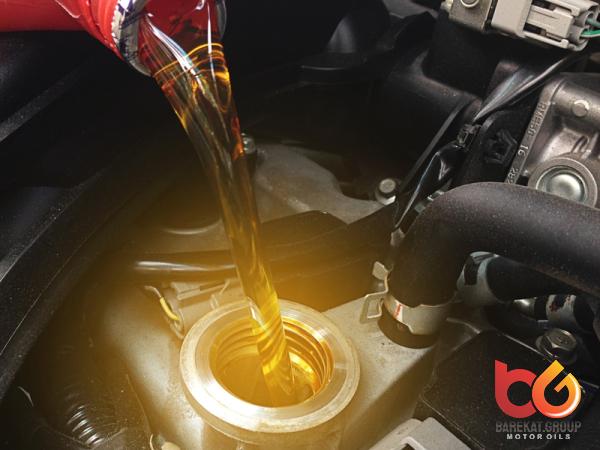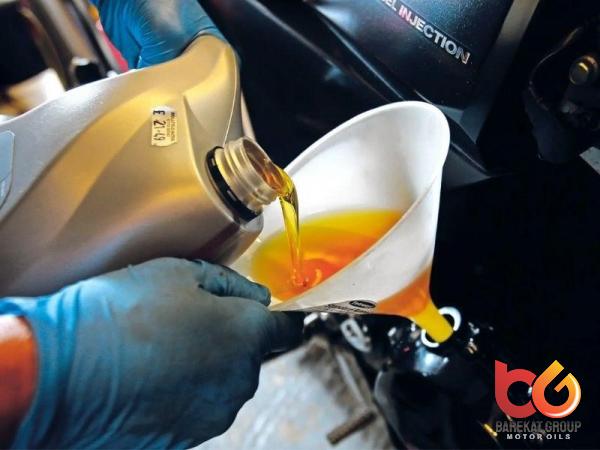Title: The Purchase Price of Car Engine Oil: Properties, Disadvantages, and Advantages Introduction: Car engine oil is a vital component for the proper functioning and longevity of any vehicle’s engine. It lubricates, cools, cleans, and protects the engine parts from wear and tear. When it comes to purchasing car engine oil, there are various factors to consider, including the price, properties, disadvantages, and advantages. This summary aims to explore these aspects to provide a comprehensive understanding of the purchase price of car engine oil. Properties of Car Engine Oil: Car engine oils are formulated to possess specific properties that enable them to perform their intended functions effectively. Some of the key properties to consider when purchasing engine oil include: 1. Viscosity: Engine oil viscosity determines its ability to flow at different temperatures. It is denoted by numerical values, such as 5W-30 or 10W-40. The first number represents the oil’s viscosity at low temperatures, while the second number indicates the viscosity at high temperatures. Choosing the right viscosity grade is crucial for ensuring proper lubrication and protection throughout the engine’s operating range. 2. Additive Package: Engine oils contain additives that enhance their performance and protection properties.
Engine oil
 These additives include detergents, dispersants, antioxidants, anti-wear agents, and viscosity index improvers. The quality and quantity of additives can vary across different brands and types of engine oil, often impacting its price. 3. Performance Specifications: Car engine oils are designed to meet specific performance standards set by organizations such as the American Petroleum Institute (API) and the International Lubricant Standardization and Approval Committee (ILSAC). These specifications, such as API SN or ILSAC GF-5, indicate the oil’s ability to meet performance requirements concerning engine cleanliness, wear protection, fuel efficiency, and emission control. Meeting higher performance specifications may contribute to a higher purchase price. Advantages of Choosing the Right Engine Oil: 1. Engine Protection and Lubrication: High-quality engine oil provides a protective layer between moving parts, reducing friction and wear. It helps to minimize engine damage caused by metal-to-metal contact, enhancing the engine’s overall lifespan. 2. Temperature Control: Engine oils dissipate heat generated during engine operation, preventing overheating and ensuring the engine operates within optimal temperature ranges.
These additives include detergents, dispersants, antioxidants, anti-wear agents, and viscosity index improvers. The quality and quantity of additives can vary across different brands and types of engine oil, often impacting its price. 3. Performance Specifications: Car engine oils are designed to meet specific performance standards set by organizations such as the American Petroleum Institute (API) and the International Lubricant Standardization and Approval Committee (ILSAC). These specifications, such as API SN or ILSAC GF-5, indicate the oil’s ability to meet performance requirements concerning engine cleanliness, wear protection, fuel efficiency, and emission control. Meeting higher performance specifications may contribute to a higher purchase price. Advantages of Choosing the Right Engine Oil: 1. Engine Protection and Lubrication: High-quality engine oil provides a protective layer between moving parts, reducing friction and wear. It helps to minimize engine damage caused by metal-to-metal contact, enhancing the engine’s overall lifespan. 2. Temperature Control: Engine oils dissipate heat generated during engine operation, preventing overheating and ensuring the engine operates within optimal temperature ranges.
Specifications of Engine oil
 Maintaining proper temperature control is essential for preventing engine damage due to excessive heat. 3. Fuel Efficiency: Engine oils that meet the latest industry standards often have improved fuel economy properties. Reduced friction and enhanced lubrication properties can contribute to better engine efficiency, leading to cost savings in the long run. 4. Engine Cleanliness: Engine oils with adequate detergents and dispersants help to prevent the buildup of deposits, sludge, and varnish inside the engine. This helps to maintain cleanliness and prevent clogging of oil passages, ultimately improving engine performance. Disadvantages of Lower-Quality Engine Oils: 1. Reduced Performance and Protection: Lower-quality engine oils may not provide adequate lubrication and protection, leading to increased engine wear and reduced overall performance. They may lack the necessary additives and fail to meet the required specifications for optimal engine health. 2. Decreased Fuel Efficiency: Inferior engine oils with higher viscosity may increase friction and resistance within the engine, negatively impacting fuel economy. Choosing the wrong oil can result in poorer mileage and higher fuel consumption.
Maintaining proper temperature control is essential for preventing engine damage due to excessive heat. 3. Fuel Efficiency: Engine oils that meet the latest industry standards often have improved fuel economy properties. Reduced friction and enhanced lubrication properties can contribute to better engine efficiency, leading to cost savings in the long run. 4. Engine Cleanliness: Engine oils with adequate detergents and dispersants help to prevent the buildup of deposits, sludge, and varnish inside the engine. This helps to maintain cleanliness and prevent clogging of oil passages, ultimately improving engine performance. Disadvantages of Lower-Quality Engine Oils: 1. Reduced Performance and Protection: Lower-quality engine oils may not provide adequate lubrication and protection, leading to increased engine wear and reduced overall performance. They may lack the necessary additives and fail to meet the required specifications for optimal engine health. 2. Decreased Fuel Efficiency: Inferior engine oils with higher viscosity may increase friction and resistance within the engine, negatively impacting fuel economy. Choosing the wrong oil can result in poorer mileage and higher fuel consumption.
Buy Engine oil
 3. Increased Sludge and Deposit Buildup: Lower-quality oils may not possess sufficient detergent and dispersant properties to keep the engine clean. This can lead to the accumulation of harmful deposits, sludge, and varnish, potentially obstructing oil passage and causing engine problems. Considerations Regarding Purchase Price: 1. Brand Reputation: Established brands with a long-standing reputation for quality often charge a premium for their engine oils. While this might initially mean a higher purchase price, it is often indicative of a more reliable and consistent product. 2. Synthetic vs. Conventional: Synthetic engine oils, made of artificially synthesized molecules, tend to be more expensive than conventional mineral oils. Synthetic oils offer superior performance, enhanced protection, and longer oil change intervals, making them cost-effective in the long run.
3. Increased Sludge and Deposit Buildup: Lower-quality oils may not possess sufficient detergent and dispersant properties to keep the engine clean. This can lead to the accumulation of harmful deposits, sludge, and varnish, potentially obstructing oil passage and causing engine problems. Considerations Regarding Purchase Price: 1. Brand Reputation: Established brands with a long-standing reputation for quality often charge a premium for their engine oils. While this might initially mean a higher purchase price, it is often indicative of a more reliable and consistent product. 2. Synthetic vs. Conventional: Synthetic engine oils, made of artificially synthesized molecules, tend to be more expensive than conventional mineral oils. Synthetic oils offer superior performance, enhanced protection, and longer oil change intervals, making them cost-effective in the long run.
Engine oil + buy and sell
 3. Volume and Packaging: Engine oil is commonly available in various packaging options, including quart bottles, gallon jugs, or bulk containers. Purchasing in larger volumes can often lead to cost savings, making it more economical for vehicle owners. Conclusion: When considering the purchase price of car engine oil, it is essential to weigh the properties, advantages, and disadvantages associated with different options. Choosing the right engine oil based on its properties, including viscosity, additive package, and performance specifications, can provide numerous benefits such as engine protection, temperature control, fuel efficiency, and engine cleanliness. However, opting for lower-quality oils may result in reduced performance, decreased fuel efficiency, and increased sludge deposition. It is crucial to consider brand reputation, synthetic vs. conventional options, and packaging volume to make an informed decision and ensure the long-term health and performance of your vehicle’s engine.
3. Volume and Packaging: Engine oil is commonly available in various packaging options, including quart bottles, gallon jugs, or bulk containers. Purchasing in larger volumes can often lead to cost savings, making it more economical for vehicle owners. Conclusion: When considering the purchase price of car engine oil, it is essential to weigh the properties, advantages, and disadvantages associated with different options. Choosing the right engine oil based on its properties, including viscosity, additive package, and performance specifications, can provide numerous benefits such as engine protection, temperature control, fuel efficiency, and engine cleanliness. However, opting for lower-quality oils may result in reduced performance, decreased fuel efficiency, and increased sludge deposition. It is crucial to consider brand reputation, synthetic vs. conventional options, and packaging volume to make an informed decision and ensure the long-term health and performance of your vehicle’s engine.
Your comment submitted.